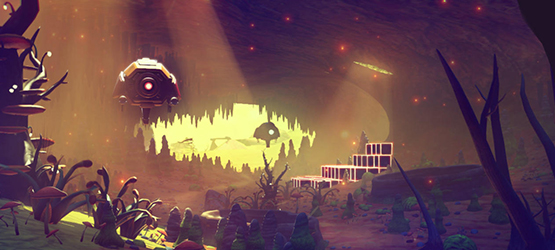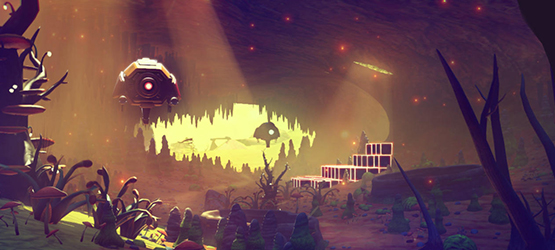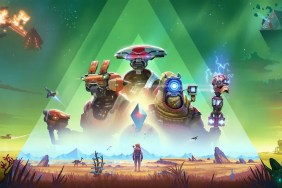Being sat in a tiny meeting room with a couple of other journalists, Sean Murray and the rest of the No Man’s Sky development team, and a big screen TV with No Man’s Sky idling is a moment that I can’t forget. The anticipation rose as we sat waiting for Sean to begin telling us more about No Man’s Sky as he played the game live in front of us. And where I will begin telling you about the presentation is perhaps the most important part of the story, because this game is driven by one simple force: Pure passion. Well, that, and a whole bunch of math.
What’s the Point?
I’m going to jump to the end of the demonstration for a moment to highlight a question that was asked by another person in the room. “Why do we want to get to the center of the universe? What is the main character’s backstory and motivation?” Sean laughed and gave a lengthy, but passionate explanation about why he could not give answers to those questions. He said that this inquiry highlights where we are as gamers. Our mindset is on the goals given to us. The missions. The checkboxes. The “go here and do this” mentality. We are so hardwired for it that when we are not provided with something to do or collect, someone will instinctively ask what those checkboxes are supposed to be. What are we supposed to be doing?
There’s a magic in discovery — something that Dan and I talked about in Daily Reaction recently — and discovery has no checkboxes, no goals, no rigid motivations outside of the player’s own sense of wonder at discovering the world around them, or in this case, the galaxy around them. The sense of discovery expands when the experience being built is not being fed to the player as a pre-programmed and planned manner, but rather being created in a way unlike any other game we’ve seen, which I think deserves an entire explanation of its own.
Procedural is Not Randomized
No Man’s Sky is procedurally generated, which should not be confused with randomly generated. These are two vastly different concepts, and there is nothing random about the way No Man’s Sky created its galactic playground. Procedural generation is based on a formula. Let’s take the equation 5x=y, where x equals the player’s position in the galaxy and y equals what is output. When the value for x is 3, the value of y will always be 15. That solution is constant and unchanging, and as you alter the value of x, the value of y will change in relation, but always as a constant based on the input value. Obviously the formula used for No Man’s Sky is incredibly more complex than my simple example, but it relays the point that I am trying to make.
There is nothing randomized about a formula, and this allows Hello Games to craft a near infinite galaxy based entirely on math without having to sculpt, mold, and develop the planets, creatures, and things you will discover for themselves. The other fascinating thing that it allows is the game to create data for the location you are in, then eliminate that data when you move away. The game is solving for a formula, so returning to that area will yield identical, non-randomized results, whether you are online or offline.
There’s something slightly existential about realizing how Sean Murray as his passionate team have quite literally put together the formula for the universe, and while it may all seem random, just like our real and quite incredible universe, there is an order to the chaos — a formula that ties everything together. This formula is the key to No Man’s Sky and everything that Hello Game’s enormous universe will be.
Stay tuned for the rest of our gameplay preview coming soon, talking about the HUD, upgrades, and what you can actually do in No Man’s Sky.
No Man's Sky Game-Changer Gallery
-
No Man's Sky Game-Changer Gallery
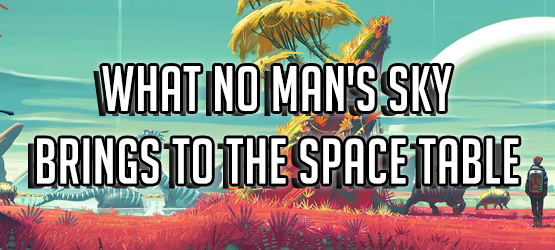
-
Space Oddity
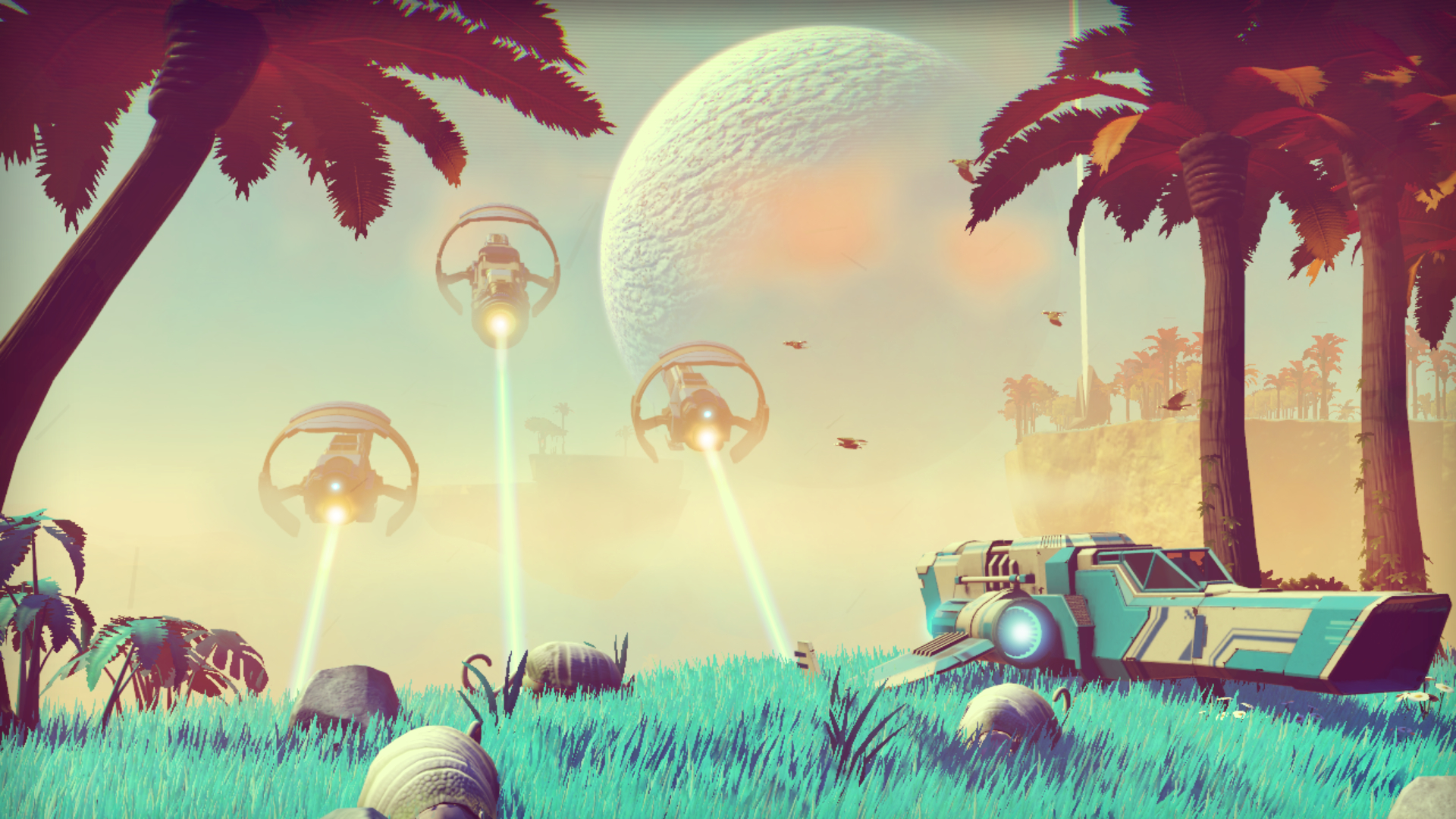
Hello Games has long made it clear that its peculiar space simulator has been a tricky butterfly to pin when it comes to preview events. An eccentricity that has us all the more excited for its eventual release.
-
Bragging Rights

Starting from scratch, players will gradually acquire wealth as they hop from planet to planet, uncovering new ships and resources in the process.
-
A New Feeling of Immersion
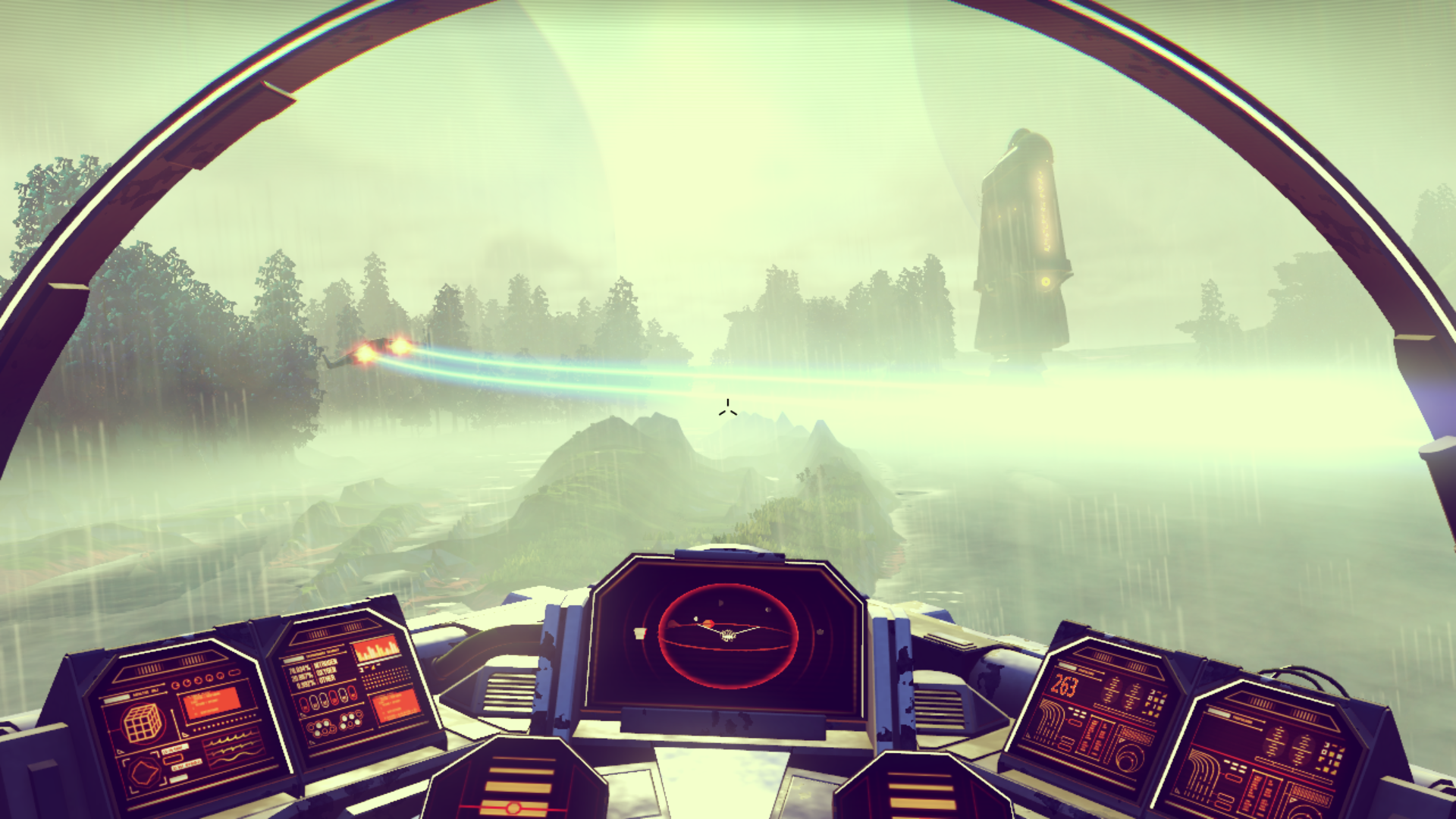
Built around a first-person perspective, No Man's Sky is placing you smack bang into the thick of the action as you explore its alien worlds.
-
Uncharted Territory
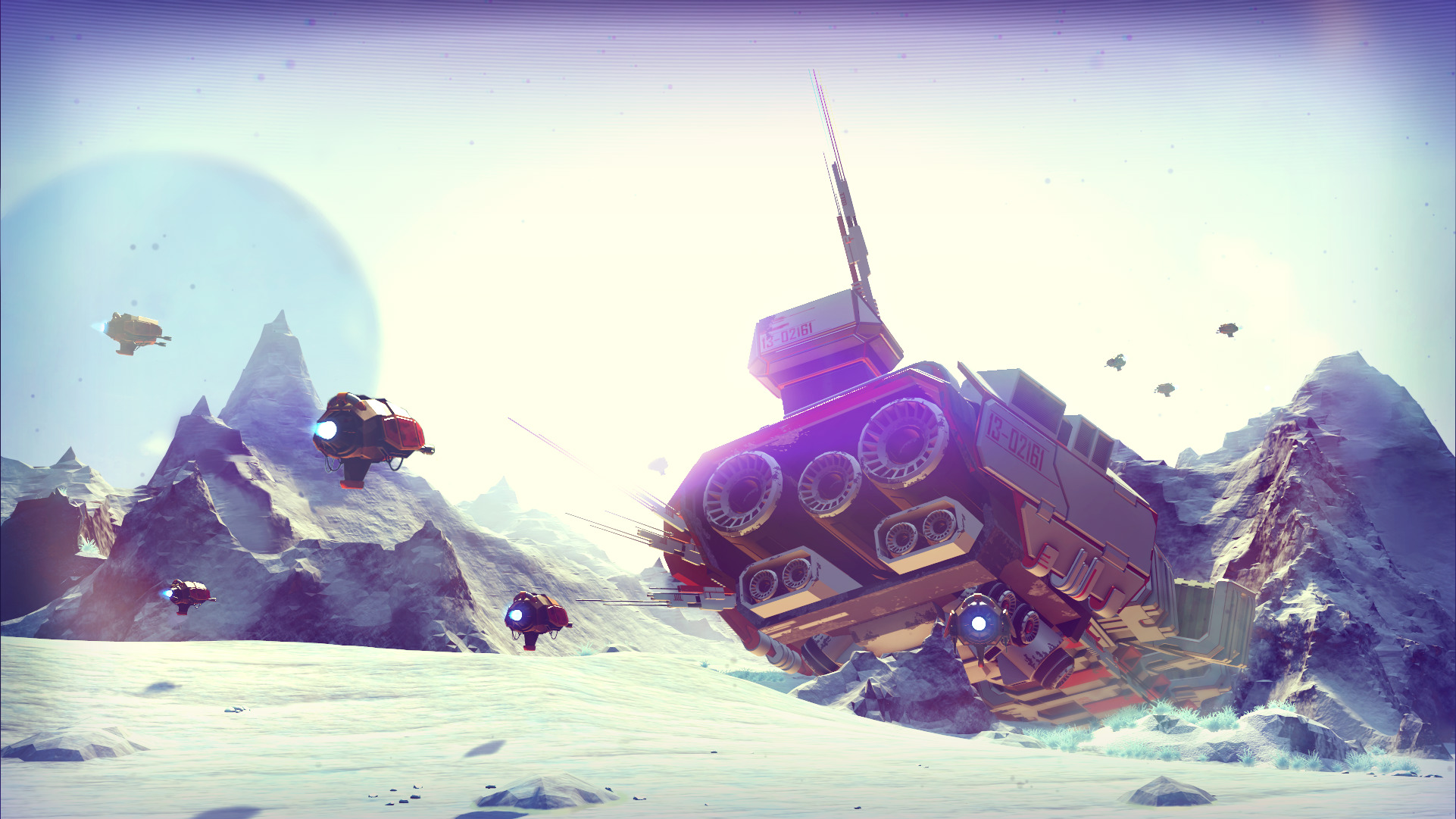
With its unique color palette and dazzling planets, Hello Games' will look to make the PlayStation 4 sing.
-
Hey, Get Back Here!

Exploration may be a core strand of the game's DNA, but the studio has hinted that players will also find themselves in the midst of high-speed dogfights.
-
Chasing the Horizon
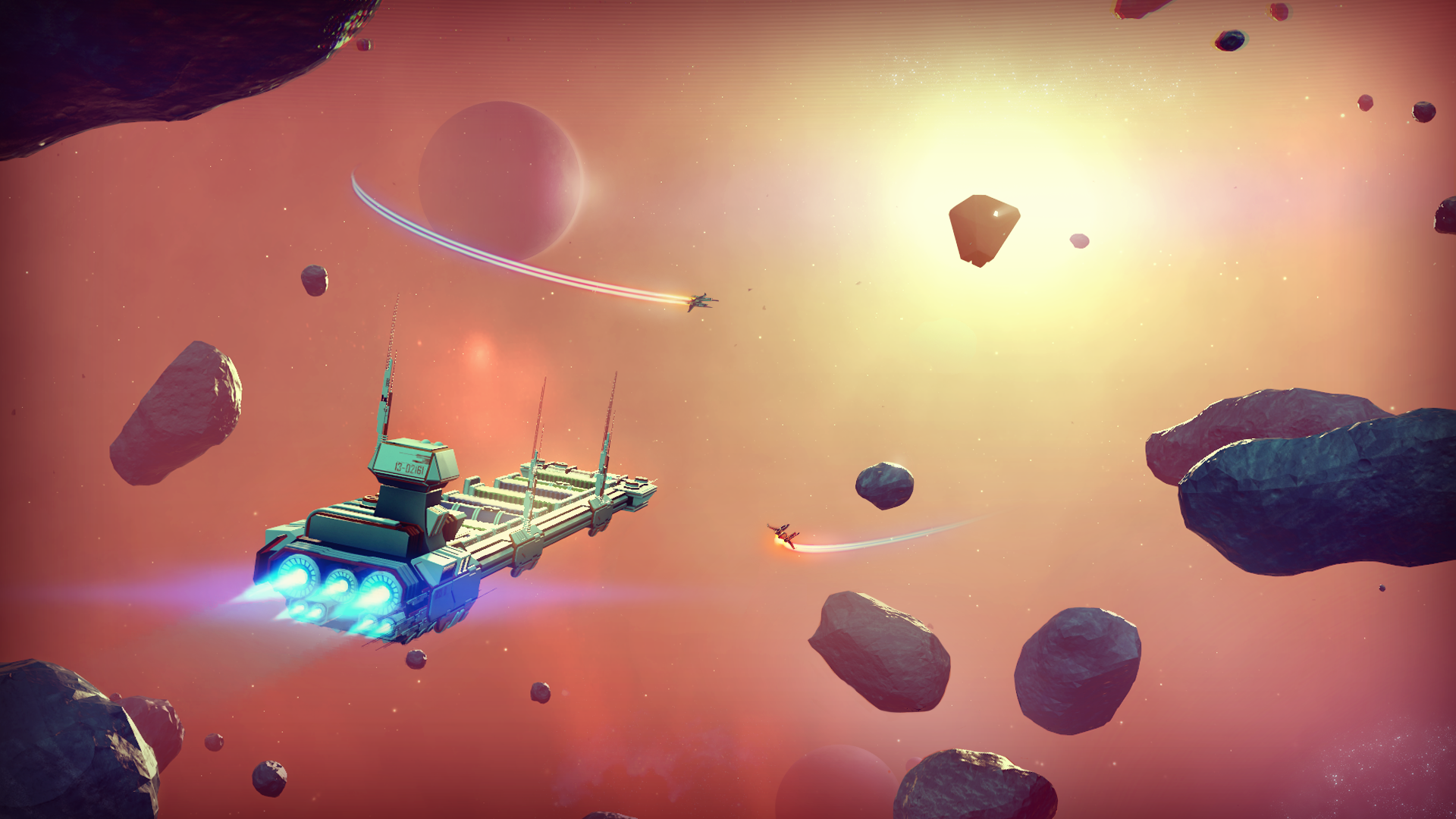
Beneath the glossy, retro-futuristic aesthetic is a burning desire to explore the unknown. Bring me that horizon!
-
Passive Multiplayer

No Man's Sky may not be a multiplayer game per se, but other players will populate your stellar neighbourhood. After all, who doesn't love some friendly competition?
-
Every Atom Procedural
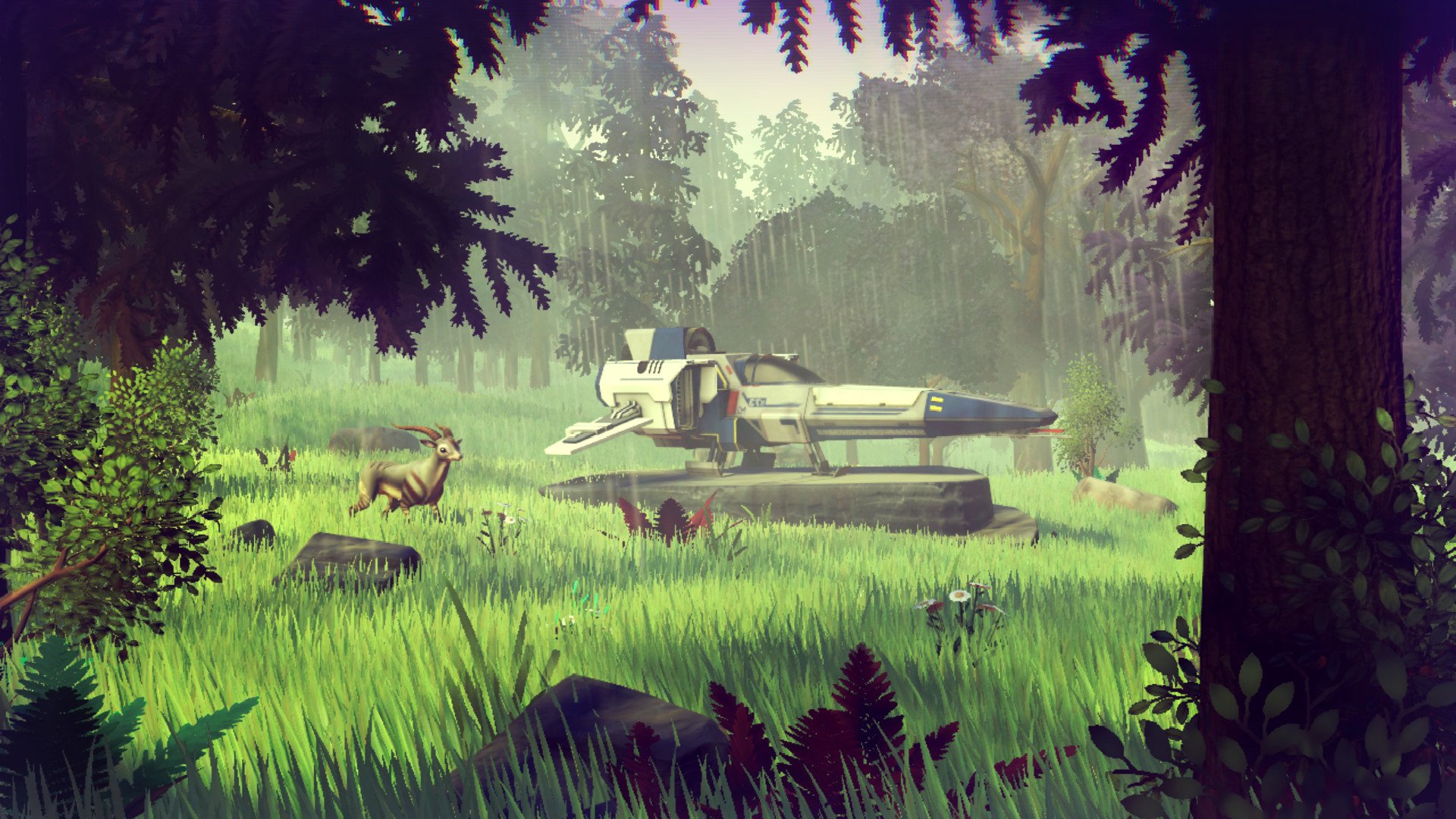
From bizarre wildlife to a planet's atmosphere, each world will be relatively different to the next, encouraging the player to go boldly where no man has gone before.
